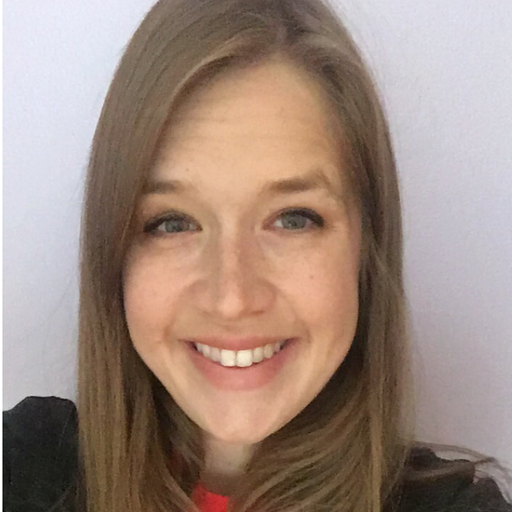The nursing profession is filled with passionate individuals who understand the importance of compassion and empathy for their patients. Psychiatric nurse practitioners work with a vulnerable population that requires extra patience and kind-heartedness.
Psychiatric nurse practitioners are nurse practitioners (NPs) who specialize in mental health conditions. They help patients suffering from mental disorders and illnesses and can treat individuals with substance abuse problems.
In this article, you can discover:
- What is a psychiatric nurse practitioner?
- What do psychiatric nurse practitioners do?
- Where do psychiatric nurse practitioners work?
- What are closely related fields?
- How do you become a psychiatric nurse practitioner in 3 steps?
- What are additional requirements of psychiatric nurse practitioners?
- What are the salary and career outlooks for psychiatric nurse practitioners?
What is a psychiatric nurse practitioner?
There are more than 355,000 nurse practitioners in the U.S. Of that number, 4.7% are psychiatric nurse practitioners. They typically work with patients that suffer from mental health issues such as anxiety, depression, bipolar disorder, or substance abuse disorders.
In many states, they can prescribe medications and work independently.
Qualities of a successful psychiatric nurse practitioner
Compassion and empathy are key characteristics of a successful psychiatric nurse practitioner. Your patients may be suffering from mental illness or recovering from substance abuse and require an extra gentle touch.
Other qualities of a successful psychiatric nurse practitioner include:
- Solid problem-solving abilities to help you identify key risk factors that can affect patient outcomes.
- Strong analytical skills for looking at patient research to allow you to design treatment plans for patients.
What do psychiatric nurse practitioners do?
A psychiatric nurse practitioner has many duties throughout the day. Their role is a hybrid between a psychiatric nurse and a nurse practitioner.
Daily duties can vary depending on where you work.
A day in the life of a psychiatric nurse practitioner
A typical day in the life of a psychiatric nurse practitioner can include some of the following duties:
- Diagnosing and treating severe psychiatric issues, illnesses, and crises
- Providing individual, group, and family psychotherapy
- Counseling patients with psychiatric problems
- Collaborating with other treatment providers to help individuals with complex psychiatric issues
- Gauging health care problems and referring to a medical specialist if necessary
- Educating patients on self-care practices
NURSE TIP

Common conditions treated by psychiatric nurse practitioners
Psychiatric nurses deal with mental illnesses and conditions, plus substance abuse issues. Some of the most common psychiatric conditions you may encounter in this role include:
- Addiction
- Anxiety
- Autism
- Bipolar disorder
- Depression
- Eating disorders
- Neurodevelopmental disorders
- Panic disorders
- Post-Traumatic Stress Disorder (PTSD)
- Schizophrenia
- Trauma
Where do psychiatric nurse practitioners work?
Psychiatric mental health nurse practitioners work in many settings. Some of these include:
- Outpatient clinics
- Inpatient facilities
- Private mental health practices
- Hospitals
- Substance abuse programs
- Trauma centers
- Prisons
There are also telehealth options available for psychiatric mental health nurse practitioners (PMHNPs) to hold meetings with clients digitally. These types of appointments allow PMHNPs greater flexibility. This type of patient outreach has become much more common.
What are closely related fields?
One of the most closely related fields to psychiatric nurse practitioner is that of case management nurse. Sometimes called Medical and Health Services Managers, these nursing professionals coordinate, direct, and plan business activities for mental healthcare providers.
Case management nurses can work in healthcare facilities like hospitals and nursing homes, or group medical practices focused on mental health.
How do you become a psychiatric nurse practitioner in 3 steps?
There are 3 steps you must take before you can begin working as a psychiatric nurse practitioner. You must hold a specific type of nursing license and pursue the right nursing degree as part of the process.
Step 1 – Become a registered nurse
You must have an active RN license to become a psychiatric NP. There are two steps to take before you can earn your RN licensure.
First, you must earn a nursing degree. Then, you must pass the NCLEX-RN exam.
Earn a degree
To become an RN, you can earn an Associate Degree in Nursing (ADN) or a Bachelor of Science in Nursing (BSN).
The associate’s degree takes 18-24 months at a community college to complete. A bachelor’s degree generally takes four years at a college or university to complete when attending full-time.
If you’re already an RN with an associate’s degree who wants to pursue your BSN, you have options. You can enroll in a RN-to-BSN program to fast-track your advanced education.
Completing your ADN or BSN helps you become an RN. But if you want to become a nurse practitioner, you’ll need additional education.
All psychiatric mental health nurse practitioners must earn at least a Master of Science in Nursing (MSN) degree. If you have already completed a BSN, you can apply directly to an MSN program.
If you only have an ADN, you will need to apply for an RN-to-MSN bridge program. With this program, you have an opportunity to obtain a BSN while earning an MSN, simultaneously. There is also a BSN-to-MSN path.
Pass the NCLEX exam
Once you complete your nursing degree, you must pass the NCLEX-RN exam to become a licensed RN. The NCLEX is a computer-adaptive test. Questions are selected based on your ability. The more correct answers you give, the more difficult subsequent test questions become.
If you fail the NCLEX on your first attempt, you can retake it after a 45-day waiting period.
Step 2: Accumulate experience
Once you become a registered nurse, pursue opportunities to gain experience within the mental health field. You can choose from a variety of settings where mental health services are provided. These can include hospitals and private mental health facilities.
You may need to gain experience before you can apply for your MSN degree. Most, but not all graduate programs require you to have psychiatric experience before you can apply.
Helpful skills and experience
Some RN positions are more beneficial than others for preparing you for your role as a psychiatric NP.
You can work as a psychiatric nurse and gain experience working with patients who have a mental illness. This can help you determine whether working with these kinds of patients is a good fit for your skills and abilities.
Changing specialty to a psychiatric nurse practitioner
If you’re working as an RN and want to try something new, you can change your specialty to psychiatric nurse practitioner. Making the switch requires you to hold an advanced nursing degree like an MSN or a DNP.
You also must take continuing education courses focused on mental health nursing to prepare you for your new role and make sure you have all relevant certifications.
Get job matches in your area + answers to all your nursing career questions

Step 3 – Obtain certifications
After graduating, you must pass the Psychiatric-Mental Health Nurse Practitioner Certification (PMHNP-BC).
The eligibility requirements for the certification include:
- Hold an active R.N. license in the U.S.
- Master’s degree or higher from a psychiatric-mental health nurse practitioner program with at least 500 accredited clinical hours
- Three graduate-level courses in advanced physiology/pathophysiology, advanced health assessment, and advanced pharmacology
- Clinical training in at least two psychotherapeutic modalities
- Content in health promotion/maintenance
- Content in differential diagnosis and disease management
What are additional requirements of psychiatric nurse practitioners?
Once you pass the exam, you need to send your results and transcripts to your state board of nursing to receive a psychiatric nurse practitioner license. Click for more license resources.
In states where nurse practitioners have prescriptive authority, psychiatric NPs must apply for a prescriptive authority license to prescribe medicine. Other states require psychiatric NPs to work under a supervisor to prescribe medicine.
What are the salary and career outlooks for psychiatric nurse practitioners?
Psychiatric nurse practitioners’ earnings depend on a variety of factors like experience, education, and location.
According to the Bureau of Labor Statistics data, the annual average wage for nurse practitioners is $118,040. Some states pay higher wages for the most experienced psychiatric NPs.
Demand for all NP specialties is expected to increase by 40% from 2021 to 2031. An additional 118,600 NPs are needed in the U.S. to meet the need over the next decade.
Get job matches in your area + answers to all your nursing career questions

Job satisfaction
U.S. News & World Report lists nurse practitioner as the number one best health care job in its Best Jobs report. NPs have above average opportunities for upward mobility in nursing, making it one of the most desirable positions.
Next steps
As a psychiatric NP, you have plenty of opportunity for advancement in your nursing career. To advance your career even further, you can obtain a Doctor of Nursing Practice (DNP) degree. There are several bridge programs to choose from:
DNPs have in-depth scientific expertise that can be used to improve patient outcomes at mental health service providers. You’ll also have greater autonomy as a DNP and can help fill the gap due to the shortage of mental health physicians.
Not sure what is the best route to take to climb the nursing ladder? You can chat with experienced nursing professionals who can help guide you through the process.
FAQs
Psychiatric NPs are registered nurses (RNs) who have additional training in mental health.
Psychiatric NPs make an average annual salary of $118,040. Some states pay higher wages for NPs with more experience.
First, you must become an RN. Then, you must pursue an advanced nursing degree like an MSN or DNP, and earn specialty certification.
Top Advanced Practice Nurse Jobs on Incredible Health
🏥 Clinical Nurse Specialist
Santa Clara, CA | $115,000 to $145,000 /year
🏥 Clinical Nurse Specialist
Baldwin Park, CA | $115,000 to $145,000 /year
🏥 Nurse Practitioner
Groton, CT | $64,000 to $145,000 /year
🏥 Psychiatric Nurse Practitioner
Boston, MA | $77,000 to $161,000 /year
🏥 Registered Nurse First Assistant
DeKalb, IL | $65,000 to $100,000 /year
Get job matches in your area + answers to all your nursing career questions

Sources
- Medical and Health Services Managers. bls.gov. Accessed November 9, 2022.
- Mental disorders. who.int. Accessed November 9, 2022.
- Mental Health and Substance Use Disorders. samhsa.gov. Accessed November 9, 2022.
- NP Fact Sheet. aanp.org. Accessed November 9, 2022.
- Nurse Anesthetists, Nurse Midwives, and Nurse Practitioners. bls.gov. Accessed November 9, 2022.
- Psychiatric-Mental Health Nurse Practitioner (Across the Lifespan) Certification (PMHNP-BC™). nursingworld.org. Accessed November 9, 2022.
- What is the Test Plan? nclex.com. Accessed November 9, 2022.
